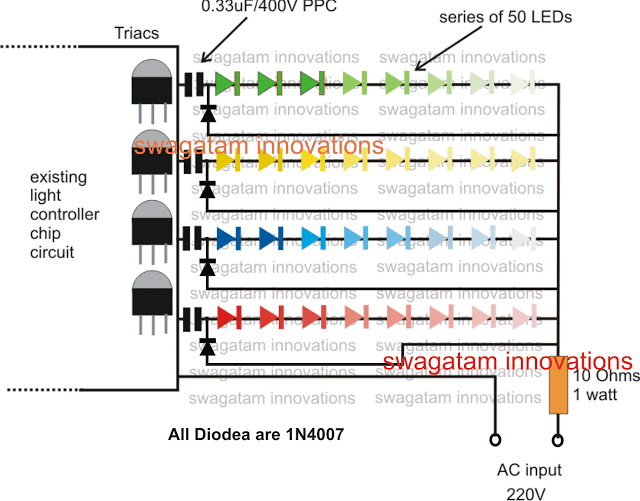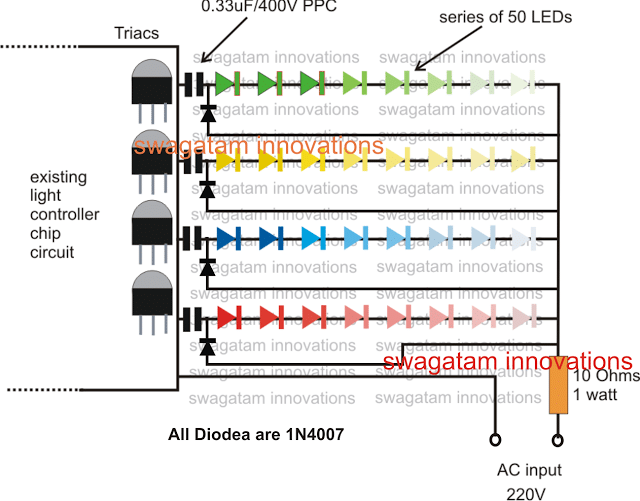In this post we study how to convert a rice bulb string light into an LED string light using some simply circuit modification.
Circuit Concept
Whether it's during a festive occasion or for mere decoration purpose, the Chinese rice bulb flashing lights have become hugely popular nowadays
These can be seen as multiple interlaced wire strings consisting of many different colored minute rice shaped bulbs which produce variety of lighting patterns when switched ON. Though these generate stunningly beautiful illuminations, are not much reliable.
The above explained types of rice bulb circuits incorporate triacs, controlled by an embedded automatic sequencing chip (COB) circuit.
How Rice Bulb Strings Work
There may be three, four or five channels controlled by the chip circuit terminated through tiny low current triacs. These triacs are high voltage, low current types, meaning these can handle upto 300 or 400 volts but cannot withstand more than say 10 to 20 mA of current
The bulb strings which are operated through these triacs are all tied up in series, therefore they present high voltage across these triacs, but since they have a very high filament resistance, the current consumption is very low. The criteria perfectly match the triac ratings.
However being in series means if any of the bulb fuses, the entire string shuts off.
Another issue with such products is there low quality wires which often tend to break spoiling the operation of the entire unit.
Though the circuit box often remains in working condition the wired elements tend to get damaged, torn, blown of etc.
Recently one of the keen readers of this blog Mr. PP suggested the use of LEDs in place of bulbs which according to him could make the lights more reliable and long lasting and also more beautiful looking.
Replacing Rice Bulbs with LEDs
LEDs can be used in place of the filament bulb, however these devices have entirely different operating characteristics. First of all they cannot restrict current like filament bulbs, meaning if directly replaced with the bulbs, both the triac and the LEDs will get destroyed instantly.
The above issue can be solved by employing a series capacitor reactance for limiting the current to 20 mA or so.
Normally, on opening the circuit box we would see small transistor shaped components lined up in a row terminating the corresponding string's wire ends.
Simply by adding series high voltage capacitors with the subsequent LEDs, the bulbs probably can be replaced with LED strings.
The following diagram shows how it can be done. The idea pretty straightforward just connect the LEDs in series along with the shown capacitors, hopefully all would start flashing and running instantly when switched ON.
The procedure is based on my assumptions and has not been tested practically so kindly be careful with it if you are actually trying this idea practically.........

